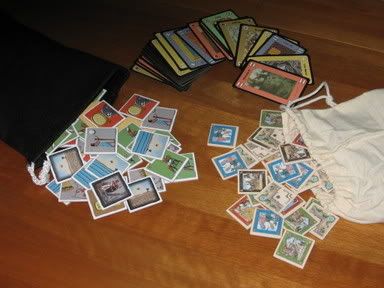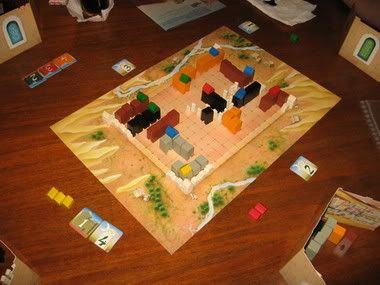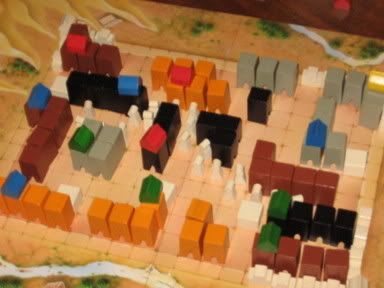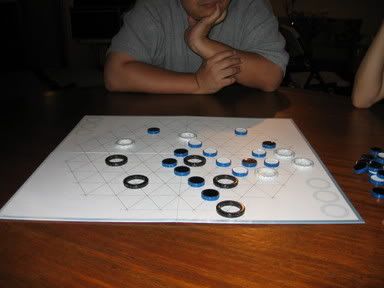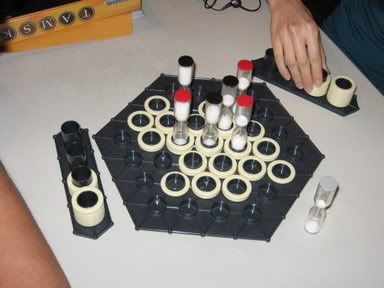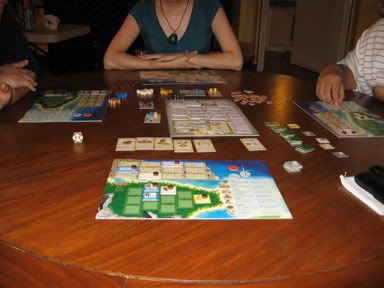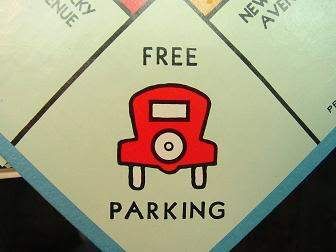
If there's one game mechanism that can show us why house rules, or not playing but a game's published rules, is something to avoid, it's Free Parking.
Free Parking jackpot, which usually consists of an initial stake plus collection of fines and taxes that would otherwise be paid to the bank. A player who lands on Free Parking wins the jackpot, which may then be reset with the initial stake (if any). The jackpot is usually put in the center of the board. (Wikipedia.org, Monopoly House Rules)
Thus it mystifies me when I read many posts of gamers modifying game rules due to perceived imperfections in the original design. Essentially, they are creating their own Free Parking problem. House rules are fine if the same group of players confine themselves to playing with each other. I'm sure that there are gaming groups where this is the case.
However, when gamers start playing with (or even worse TEACHING the game to) people from other gaming groups, then the house rules become a problem. It becomes easy to forget the correct published rules when you are used to playing with house rules.
Say, your group has decided that you don't want to deal with memory and therefore always play Euphrat & Tigris with open scoring. You then teach the game to a cousin from out of town, who then buys his own copy and takes it back home. He then teaches the game to his own friends with the same open scoring rules error. It is in this way that Free Parking comes to Mesopotamia. When these players go out and play with others, they are surprised to learn that they have been taught Euphrat & Tigris incorrectly.
It is understandable that gamers try to take a game that they found uninteresting or borken and try to salvage their investment by tweaking the rules. Perhaps it would be better to simply take the offending game and sell or trade it. There are many games that work very well out of the box. Why dignify a crappy game by devoting even more time trying to fix it, and then playing the same crappy game again in the hope that the fix improved gameplay? Sell or trade it for a game that you know works. Boardgamegeek is a good place to see if a game you have your eye on has any problems.
On a final note, companies are exhibiting an increasingly alarming tendency to issue games with poorly-written rules. Whether this is a result of poor translation from a foreign language or simply having a poor rules writer AND editor is irrelevant. Companies then try to correct this problem by issuing errata or "official variants". ("Official variant" is a term that is horrible and laughable at the same time.) A recent and very amusing example is the recent release of the new edition of Britannia, which had its "FAQ and errata" released one day (Feb 23) after the game (Feb 22). That's just pathetic from a consumer standpoint. There is clearly very little focus on quality in this case.
There are apologists who say that this kind of thing is expected and should be tolerated. Bullshit. What happens to the people who buy the game but never access the internet? They're stuck with a product that's flawed or even broken such as Avalon Hill's Betrayal at House on the Hill. The publisher's product contains house rules (since the rules are incorrect and/or incomplete) as produced, and the correct way to play the game is issued as a fix. We've already given up on holding software companies to standards of high quality, accepting that all software will have patches, bugfixes or service packs just to get them to work as advertised. Let's not do the same thing with publishers or any other companies that produce flawed products.
Let's not pay for Free Parking.
